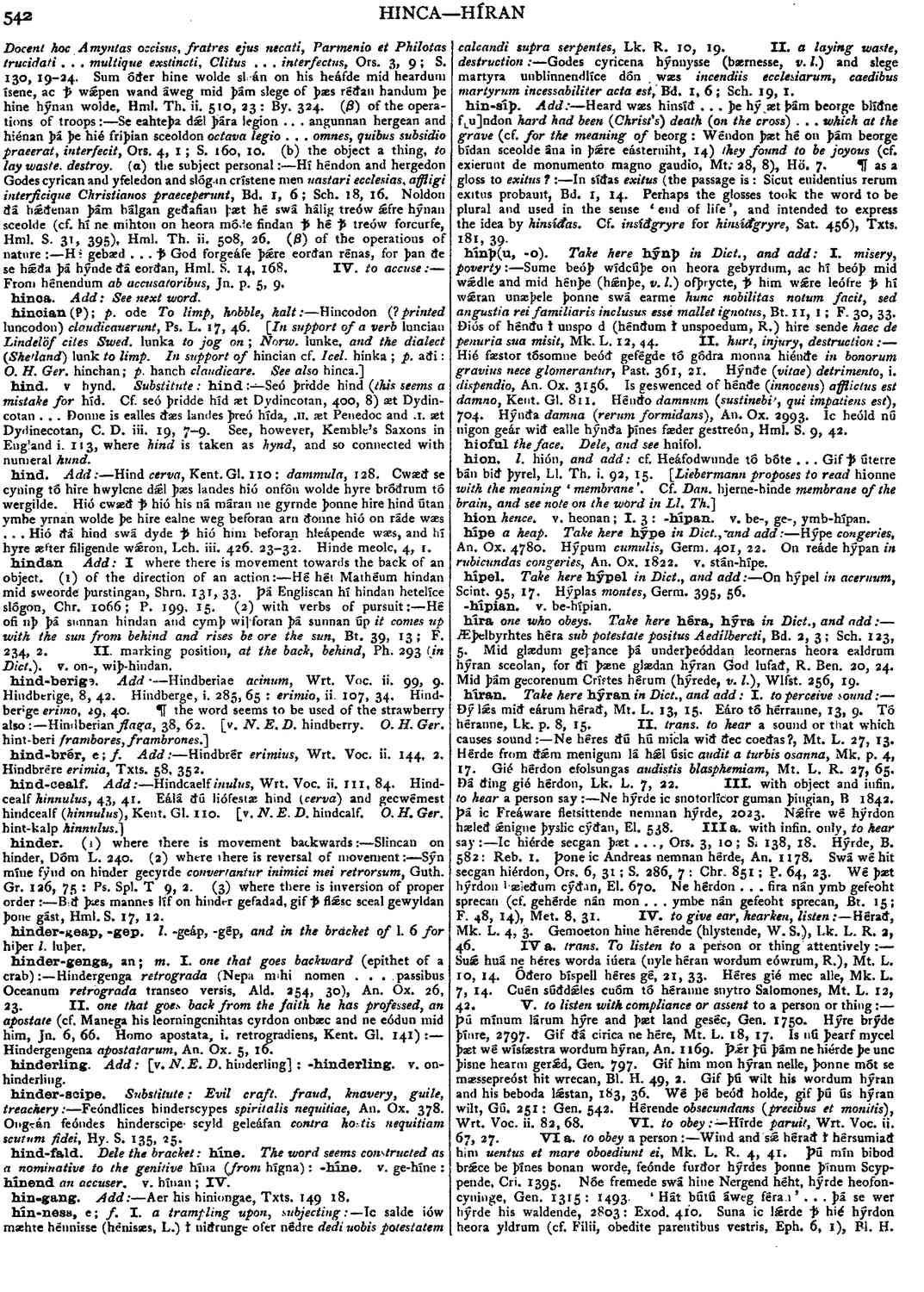hin-síþ
-
Heard wæs hinsíð . . . þe hý æt þám beorge blídne f[u]ndon
hard had been (Christ's) death (on the cross) . . . . . which at the grave
(cf. for the meaning of beorg: Wéndon þæt hé on þám beorge bídan sceolde ána in þǽre eásterniht, 14)they found to be joyous
(cf. exierunt de monumento magno gaudio,
- Mt. 28, 8 ),
- Hö. 7 .
Sicut euidentius rerum exitus probauit,
- Bd. 1, 14 .
-
Perhaps the glosses took the word to be plural and used in
the sense 'end of life', and intended to express the idea by
hinsíðas. Cf. insíðgryre for hinsíðgryre,
- Sae. 456 ),
- Txts. 181, 39 .
Bosworth, Joseph. “hin-síþ.” In An Anglo-Saxon Dictionary Online, edited by Thomas Northcote Toller, Christ Sean, and Ondřej Tichy. Prague: Faculty of Arts, Charles University, 2014. https://bosworthtoller.com/52528.
Checked: 1